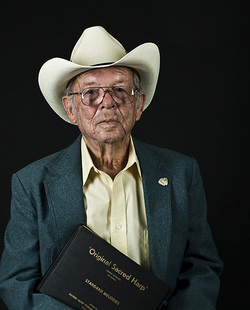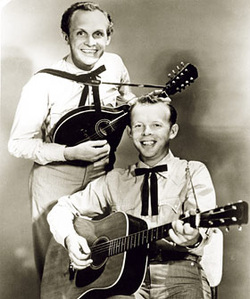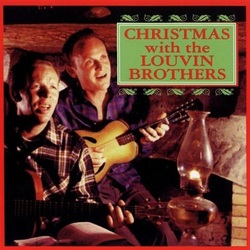
One of 7 children, Charlie Louvin was born in Henagar, Alabama in July 1927, three years after brother Ira was born. As was often the case in rural southern homes at the time, religious music was frequently heard and sung within the house. As Charlie frequently recalled, Sacred Harp music was especially popular at the time and his mother would sing constantly, whatever she was doing. Brother Ira, whose distinctive tenor became a signature of the Louvin Brothers' sound, joined up with Charlie Monroe while brother Charlie was in the Air Force. When Charlie came home in 1946, Ira told him that, if they were going to make a living at music, "You're going to have to learn to play the guitar. I'm gonna get me a mandolin and that's the way we're goin'." The boys changed their names to Louvin in 1947 because "we got tired of being called 'Ira and Charlie Buttermilk'."

But the Louvin Brothers had one thing that they really wanted to do. They wanted to play The Grand Ole Opry. They'd auditioned several times, but "the gospel people looked at us as if we were a carnival act. We played those old string instruments." But they figured they'd give the Opry one last try before calling it quits. Their A&R man told the Opry that the Louvins had offers (which they didn't) from The Ozark Jubilee, a competing broadcast, and The Opry relented. With their Opry fueled resurgence, The Louvin Brothers approached their label, Capitol Records, about recording secular material in addition to their country gospel. "When I Stop Dreaming" was a Top Ten hit. The follow-up, "I Don't Believe You've Met My Baby", went to #1. Though the pair scored a half-dozen more chart hits after that, success was short-lived once again.
As Charlie recalled, not that long ago, "Then Elvis came along. That hurt country music a lot--it changed all music. Then, that made my brother drink more." Ira had always had a temper and the drinking made it that much worse. By 1963, Charlie decided he couldn't handle working with his brother anymore and set out on a solo career. Ira was killed by a drunk driver two years later.
Charlie continued singing and recording very nearly to the end. A December performance was filmed for the documentary "Still Rattlin' The Devil's Cage", expected to be released this spring. As Phil Everly said Wednesday through his son, "Harmony just got a lot better in heaven."

 RSS Feed
RSS Feed

